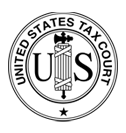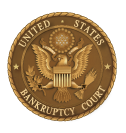BANKRUPTCY AND DIVORCE
It is not uncommon to file bankruptcy after a divorce. You or your ex-spouse may not be able to keep up with payments on a single salary. It happens, it’s a legitimate reason to look for relief through bankruptcy.
Money is a big stress factor in many relationships. Sometimes a couple that has money problems will think that the answer to their problems is divorce. Each spouse is likely to believe that the other is mostly responsible for the couple’s money problems. This belief may or may not be true. One thing is true, you can divorce your spouse, but you can’t divorce the debts incurred during your marriage.
When either party contemplates bankruptcy, one consideration is the timing of the filing and whether the parties should file a joint bankruptcy before or during the divorce, or an individual bankruptcy before, during, or after the divorce. Your creditors are not part of the divorce, and the family court cannot alter, modify or revise the contract between debtors and creditors. Any joint debt discharged by one party will leave the other party solely liable, exposed to collection efforts and law suits, and will often force the other spouse to repay or file bankruptcy.
Both spouses are responsible for the debts incurred during the time of the marriage. Your divorce settlement will divide up the debts, assigning responsibility for some to one spouse and some to the other. But that divorce settlement is between you and your ex-spouse. It doesn’t bind your creditors, who can collect the debt from either of you. This means if your ex-spouse doesn’t pay his or her share of the debts, the creditor can come after you for payment.
HOW CAN I GET STARTED?
Call our office today and set up your free consultation with an attorney. We will discuss which chapter of bankruptcy is best for you.
Bankruptcy can mean different things to different debtors. There are several types of bankruptcy chapters provided under the U.S. Bankruptcy Code, each with its own rules and procedures.
The most common filings for bankruptcy are Chapter 7 and Chapter 13. Chapter 7 will wipe out all your unsecured debt (credit cards, medical bills, utilities, etc.). You can also keep your house and vehicle in Chapter 7, as long as you are or can get current on payments. Chapter 7 is a straight bankruptcy. This will stop all collection proceedings including phone calls, mailings, garnishments and court proceedings. Most bankruptcy filings in the U.S. are Chapter 7. Under a Chapter 7, any debt incurred to a spouse or former spouse that is incurred during a divorce by agreement, decree or court order is not dischargeable.
Chapter 13 is a repayment plan. It is referred to as a wage earner plan. You must have a reliable source of income to repay all or a portion of your debt. Chapter 13 will stop a foreclosure or repossession as well. It is designed to help you retain your home or vehicle if you are behind in payments. You will repay 1% to 100% of your unsecured debt, depending on your individual situation. Repayment will last a minimum of three and maximum of five years. During this time it will be up to the creditors to file claim in order to be paid during the case. Under a Chapter 13, the debtor may receive a discharge from obligations incurred as part of the divorce if certain conditions are met.
HOW CAN I GET BACK ON TRACK?
Once you have fully discharged, rebuilding credit can sometimes seem like an overwhelming task. But it’s important to realize that there is life after bankruptcy. Repaying your existing bills as agreed will be one of the single most powerful things you can do to restore your finances and your credit.
FREE CONSULTATION
Contact our office at 513-752-3900 to schedule your free consultation to see if bankruptcy will give you the financial relief you are looking for.






